Pregnant women are encouraged to get vaccinated, The Royal College of Obstetricians and Gynaecologists (RCOG) has advised on what steps to take to avoid COVID-19 during Pregnancy
The Covid-19 vaccines are now being offered to everyone aged 18 and over, including pregnant women. Whatever stage you’re at in your pregnancy, if you’re breastfeeding or plan to have children in the future, you can get vaccinated and help protect yourself from serious illness.
It’s a particularly important time to consider getting the vaccine as observing some of the strictest Covid-19 safety measures – such as wearing a mask and social distancing – are no longer legally enforced and people will be able to choose whether or not to continue taking these precautions.
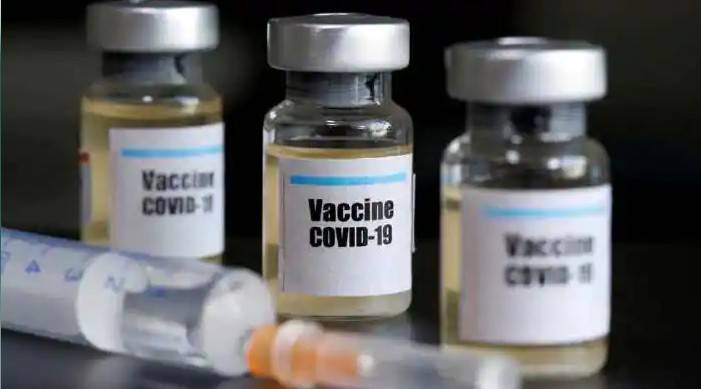
The Royal College of Obstetricians and Gynaecologists (RCOG) has advised that unvaccinated or partially vaccinated pregnant women should take steps to avoid COVID-19 infection by continuing to practice social distancing, particularly in their third trimester.
If you haven’t got your jab yet, you may have some questions about if the vaccine could affect your pregnancy or your baby.
Here, six medical experts answer some of the most common questions about Covid vaccination, pregnancy, fertility and women’s health.
Is it safe to have the Covid vaccine while breastfeeding?
Yes, it is safe to have the vaccine if you’re breastfeeding. The Joint Committee on Vaccination and Immunisation (JCVI) and the World Health Organization (WHO) have recommended the Covid vaccines can be taken while breastfeeding. Like everyone aged 18 or over, breastfeeding women can now book their Covid vaccination.

Dr Kiran Rahim
When during my pregnancy should I have the Covid vaccine?
You can have your vaccine at any stage of your pregnancy. There’s no reason to delay getting the jab because you’re pregnant.
Dr Kiran Rahim
What are the benefits of getting the Covid vaccine during pregnancy?
The vaccine will help to protect you and your baby from Covid-19 infection. While it’s very rare for pregnant women to become seriously ill if they get Covid-19, it may be more likely later in pregnancy. If this happens, there’s a small chance your baby may be born prematurely, which can affect their long-term health.
Dr Henna Anwar

Why did the advice change on whether pregnant women should have the Covid vaccines?
Robust real-world data from the United States shows that around 120,000 pregnant women have been vaccinated mainly with mRNA vaccines, such as Pfizer-BioNTech and Moderna, and no safety concerns have been raised. As a result, the Joint Committee on Vaccination and Immunisation (JCVI) has updated its guidance.
Dr Chintal Patel

Which Covid vaccine should I get if I’m pregnant?
If you’re pregnant, the Joint Committee on Vaccination and Immunisation (JCVI) has advised it’s preferable for you to be offered a choice of two vaccines – Pfizer and Moderna. This guidance is based on the data from the United States that shows around 120,000 pregnant women have been vaccinated mainly with mRNA vaccines, such as Pfizer-BioNTech and Moderna, and no safety concerns have been raised.
Dr Koyes Ahmed

How long should I wait in between getting the Covid vaccine and other vaccinations during pregnancy e.g. the flu vaccine
To protect you and your baby, it is important you receive all of the vaccines you need during pregnancy, which includes whooping cough and, in winter, the flu vaccine. These vaccines can safely be given alongside COVID-19 vaccines, but you may wish to separate the jabs by at least 7 days to avoid confusion over any of the common side effects.
Dr Nighat Arif
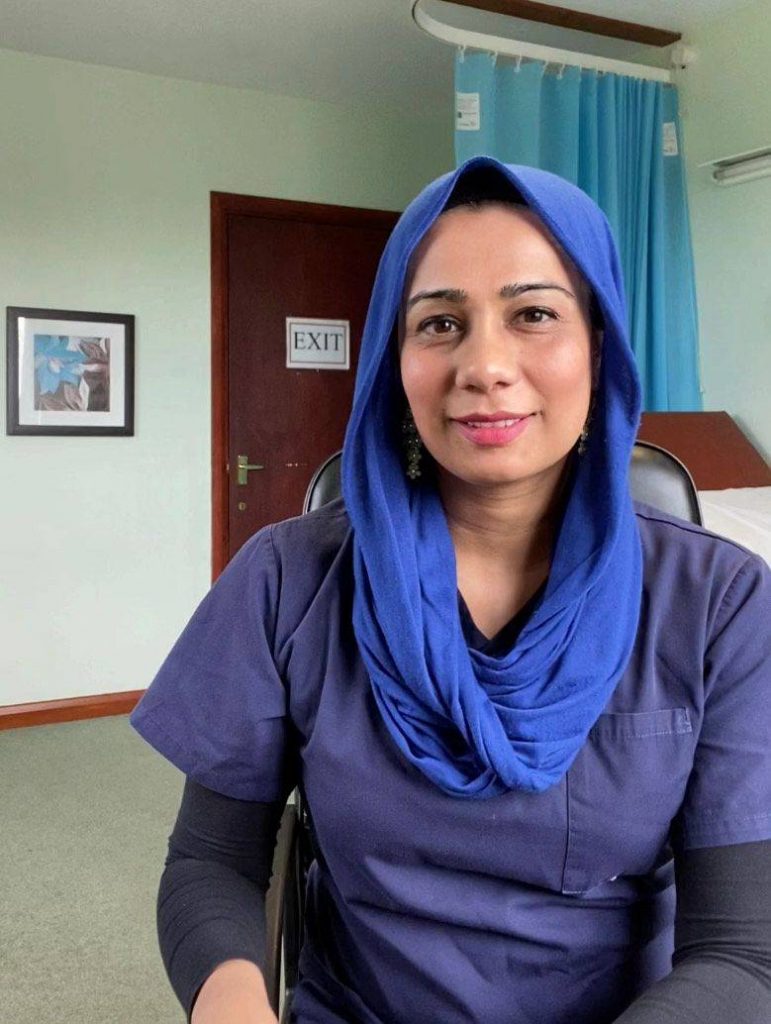
Could the Covid vaccine side effects impact my baby’s development or health?
The Covid vaccines do not contain any ingredients known to be harmful to pregnant women or babies. None of the Covid vaccines being administered in the UK are live vaccines so they cannot infect you or your baby with the virus and are considered safe to receive during pregnancy.
Dr Koyes Ahmed
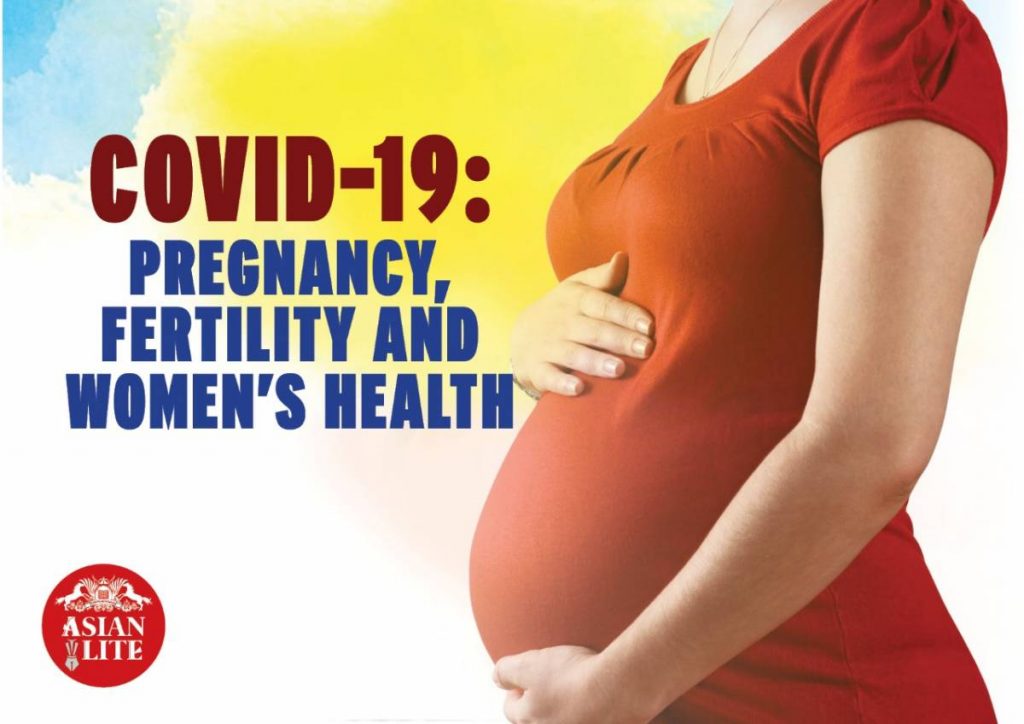
Could the Covid vaccine affect my fertility?
Claims that Covid vaccination could affect fertility are not supported by any data. During the clinical trials a number of women became pregnant by accident – a similar number in the vaccinated and unvaccinated groups.
There is evidence from other vaccines – such as the flu vaccine, which is a non-live vaccine like the COVID vaccine – that they are perfectly safe and do not affect fertility. The theory that immunity to the spike protein could lead to fertility problems is not supported by evidence. Most people who contract COVID-19 will develop antibody to the spike and there is no evidence of fertility problems after Covid-19 disease.
Dr Nighat Arif
Can I have the Covid vaccine if I’m undergoing IVF treatment?
Yes, you can. The British Fertility Society says that as some people may experience minor side effects in the few days after vaccination, you may want to leave a few days between your Covid vaccination and some fertility treatment procedures (e.g. egg collection and embryo transfer in IVF) so that any symptoms may be attributed correctly to the vaccine or the treatment procedure.
You can speak to your medical team for tailored advice.
Dr Pavan Minhas
If you have more questions about Covid-19 vaccination, speak to your GP, midwife or health worker.
For more information and to book your vaccination, visit nhs.uk/covidvaccine
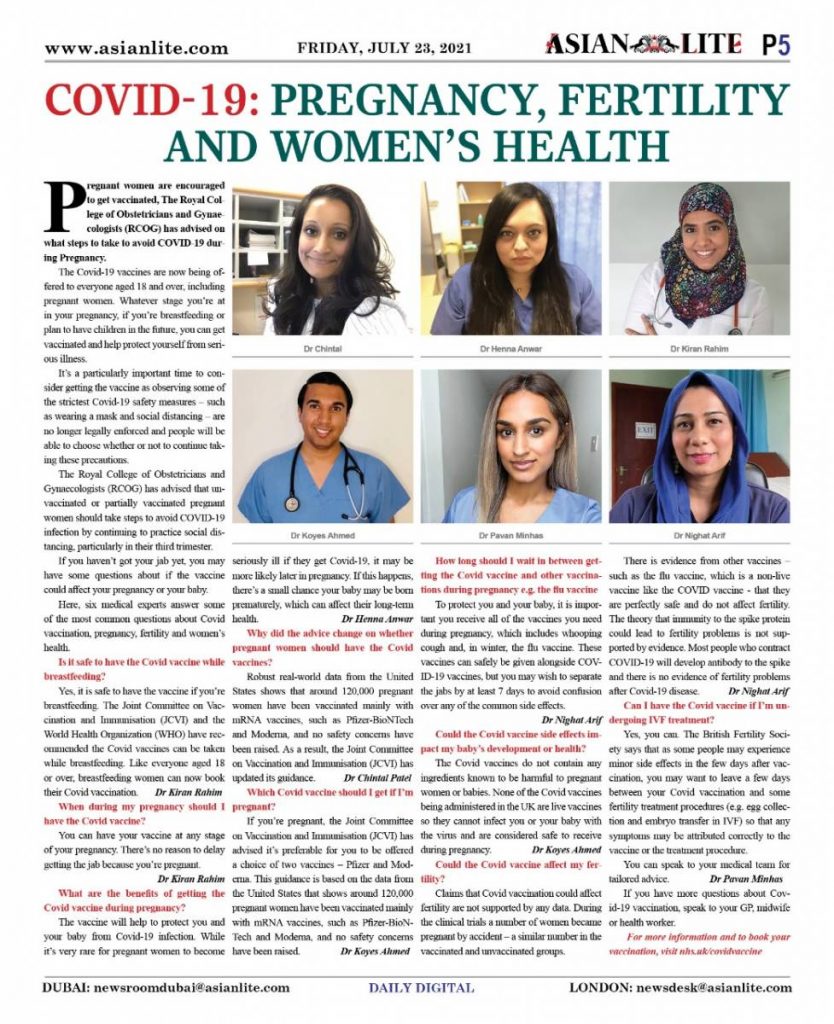

Dr Nighat Arif 
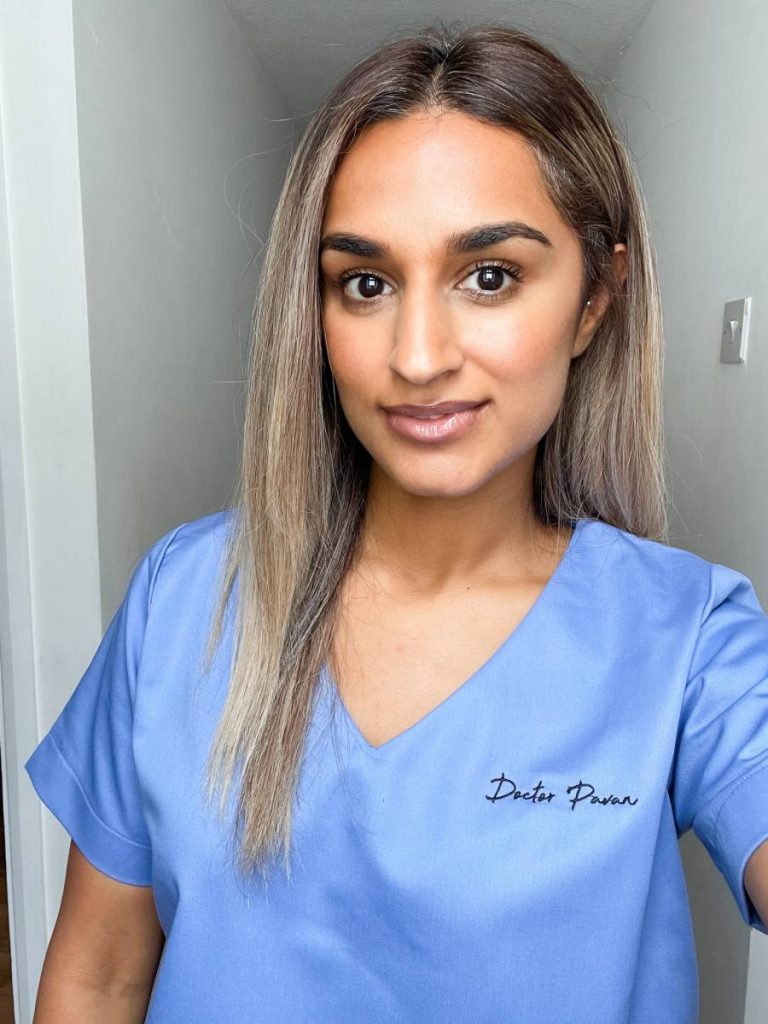
Dr Pavan Minhas 
Dr Koyes Ahmed 
Dr Kiran Rahim 
Dr Henna Anwar 
Dr Chintal Patel
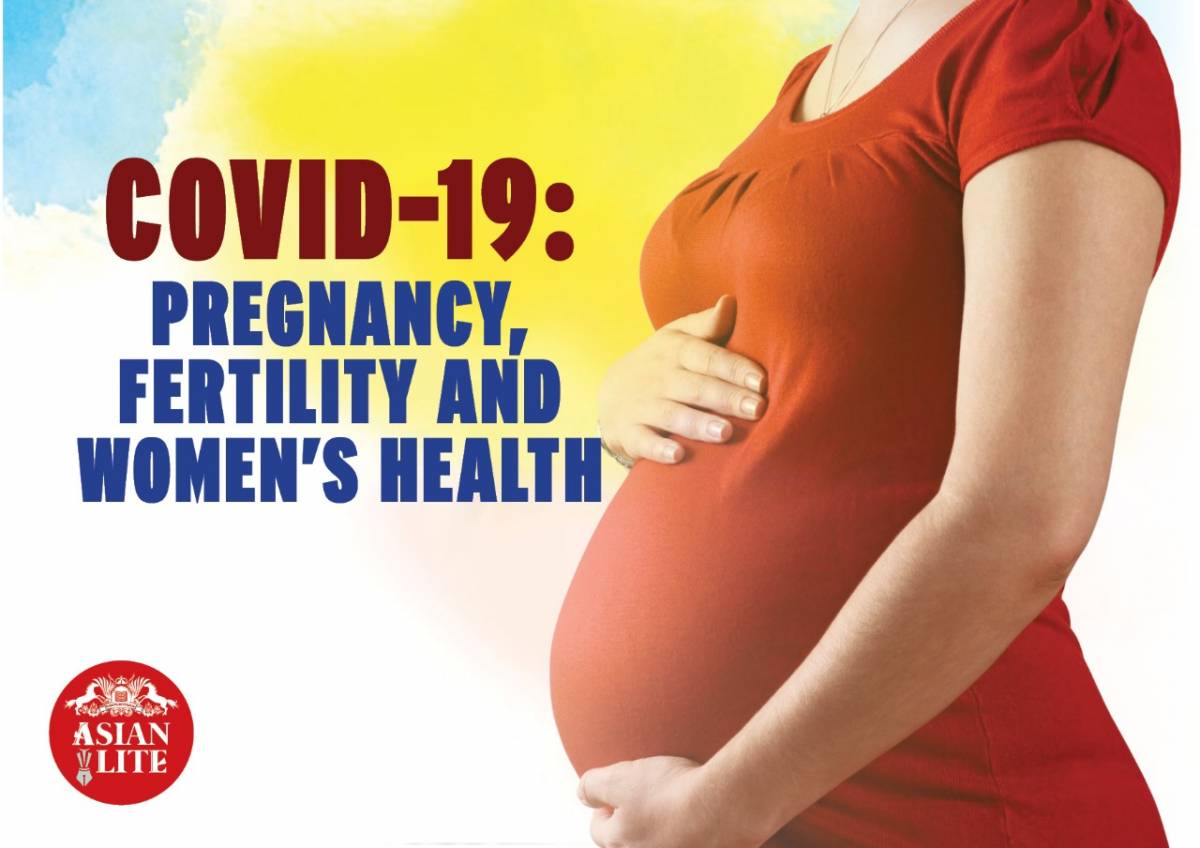
Leave a Reply